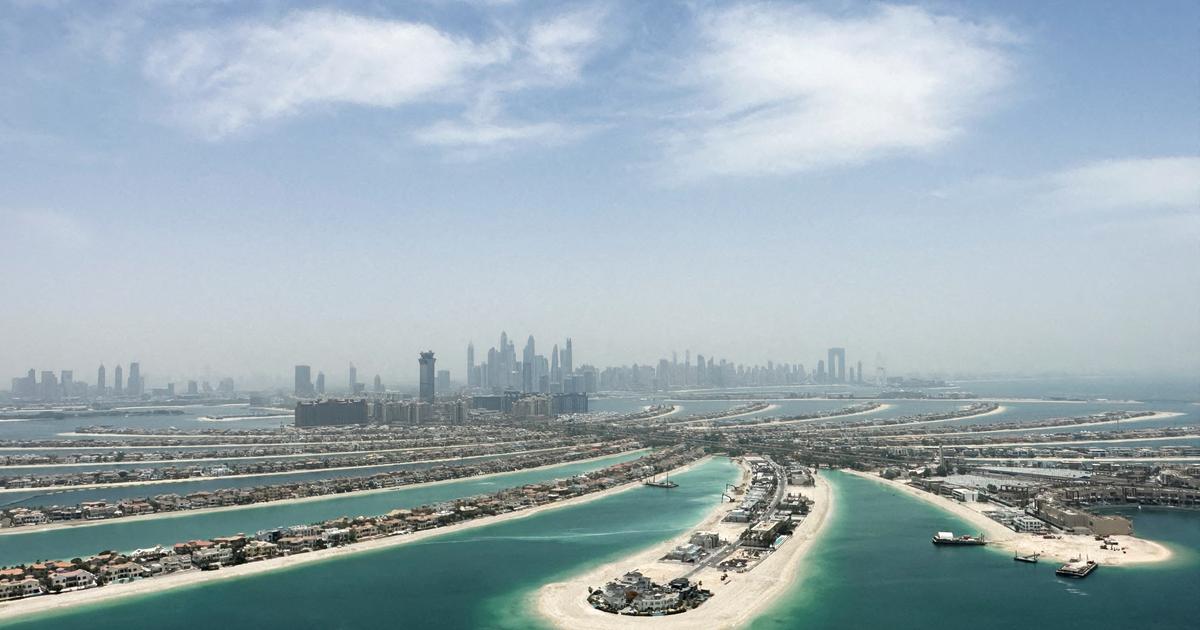Enlarge image
Demonstrator in Berlin: gas supply without Russia as a challenge
Photo: Achille Abboud / imago images/Achille Abboud
The scientist Elisabeth Schimpfössl has dealt intensively with the Russian moneyed nobility.
Schimpfössl, who researches and teaches at the London School of Economics, believes that what the British government now wants to do against the oligarchs in view of the Russian invasion of Ukraine is not effective.
Schimpfossl, who analyzes the influence of wealthy Russians in the United Kingdom, said that the three Putin allies now targeted by the British government with sanctions are not very active in Britain.
'This is a joke.
That signals to the oligarchs here that nothing is happening and that the lobbying of the past few days has been successful.”
Prime Minister Boris Johnson announced on Tuesday that he would impose sanctions on five Russian banks and three extremely wealthy Russian citizens.
The sanctioned oligarchs are Gennady Timchenko and Boris Rotenberg and his nephew Igor.
All three businessmen are considered close allies of Russian President Vladimir Putin.
Their and other Russian super-rich activities in London and elsewhere in Britain have long been a concern of parliamentarians, journalists and pundits.
The business relationships of the oligarchs reach into the highest circles of politics and society.
The EU and the USA, among others, are taking similar steps as Great Britain.
The new EU sanctions include putting those 351 members of the Russian parliament on the sanctions list who voted to recognize the self-proclaimed People's Republics of Luhansk and Donetsk.
There are also penalties against 27 other people and organizations.
The Russian state's access to the EU financial markets is to be curtailed and the EU's trade with the breakaway regions is to be restricted.
The US government announced sanctions against two major Russian banks, against the trading of Russian government bonds and against supporters of Putin and their families.
The economic consequences of the German halt to the certification of Nord Stream 2 are now difficult to quantify - empirical values about how much revenue is actually generated with the pipeline are not yet available.
However, dependency on gas from Russia could continue to rise with it.
Up to almost 70 percent of the natural gas required in Germany could come from Russia instead of around half so far.
Putting the pipeline through the Baltic Sea on hold is fueling a debate in Germany about the gas supply and the already skyrocketing energy prices.
"I don't think anyone should fool themselves, we already have high energy prices, and that will affect us too," said former Foreign Minister and SPD politician Sigmar Gabriel.
Nevertheless, he welcomed the step: "We now have to show what peace in Europe is worth to us, and I think we shouldn't shy away from that."
Medvedev scoffs at the threat of gas price hikes
Timm Kehler, head of the industry association Zukunft Gas, said that price increases would be passed on to consumers with a delay by means of long-term contracts.
The energy expert Claudia Kemfert from the German Institute for Economic Research has already warned: "There is no question that we are in a very serious situation, even in the midst of a fossil energy war."
Former Russian President and Deputy Head of the Russian National Security Council, Dmitry Medvedev, has already threatened: "Welcome to a new world where Europeans will soon be paying 2,000 euros per 1,000 cubic meters of gas!" Import or for the end consumer, in any case, a value of two euros per cubic meter would be well above current prices.
Kerstin Andreae, head of the Federal Association of Energy and Water Industries, said: "If deliveries from Russia fail from one day to the next, that's a big challenge." specially protected.
In the short term, Germany could also obtain some of the possible gas supplies from other sources, said DIW researcher Kemfert.
"In addition, we are currently at the end of winter." What it will be like next winter depends crucially on whether it is possible to set up a strategic gas reserve, for example.
Habeck calls for a closed approach
The federal government had suspended the approval process for the operation of the Russian-German natural gas pipeline.
In doing so, she reacted to the Russian recognition of the self-proclaimed People's Republics of Donetsk and Luhansk in eastern Ukraine.
According to the Russian gas company Gazprom, the pipeline was completed in September 2021 and is intended to bring gas from Russia to Germany.
Because of the further escalation, the government in Washington and the EU Commission have already indicated that they are ready for further sanctions.
Federal Economics Minister Robert Habeck (Greens) said in the ARD "Tagesthemen" that it was "centrally important at the moment that Europe and the USA proceed as one" and "neither enter into a race to outbid or undercut sanctions".
Apr/dpa/Reuters/AFP







